- Home
- Angel Lawson
The Wayward Sons: Starlee's Heart: WhyChoose Contemporary Young Adult Romance
The Wayward Sons: Starlee's Heart: WhyChoose Contemporary Young Adult Romance Read online
The Wayward Sons
Starlee’s Heart
Angel Lawson
Contents
Chapter 1
Chapter 2
Chapter 3
Chapter 4
Chapter 5
Chapter 6
Chapter 7
Chapter 8
Chapter 9
Chapter 10
Chapter 11
Chapter 12
Chapter 13
Chapter 14
Chapter 15
Chapter 16
Chapter 17
Chapter 18
Chapter 19
Chapter 20
Chapter 21
Chapter 22
Chapter 23
Chapter 24
Chapter 25
Untitled
Untitled
1
Starlee Nye.
That was my great-grandmother’s name.
Movie star. Legend. Pioneer.
She named my grandmother after herself, who then named my mother the same and out of some kind of forced tradition, my mother named me Starlee, too.
It’s weird because the name is unusual—unique—my classmates mocked it. Their parents frowned or rolled their eyes, thinking it was just another special-snowflake name. That my mother was trying to be “different” and wanted me to be “different.”
The problem is, name or not, I am different from other people. Other teenagers. The other Starlees.
Sure, we may look similar. Put the four Starlees in a row and there’s a resemblance. Dark hair, blue eyes and fair skin. None of us are very tall, but the first three Starlees made up for height with spirit. Me? Somehow the charisma that flowed through these women dissipated by the time I was born.
Honestly, I’m a little bit of a freak.
Who wouldn’t be after five years of being isolated from other kids my age? Spending all my time at home. Locked away with stacks of books and my mother as my only true companion.
That is, until I started online school and I made some friends—virtual friends, but still friends--and suddenly it’s like a whole world opened up to me. A real world, even if it was just through instant messages and witty comments.
Those friendships, those messages, and one fateful night are why my mother is driving me through the desert to the home of the original Starlee Nye to live with the second Starlee Nye, my grandmother.
It’s why I’m staring out the window of the tiny rental car with my two suitcases stowed in the back, one filled with clothes, the other books.
The outside world isn’t for me. It’s too dangerous. Scary. So, I’m being punished and sent to the most desolate place on earth.
The landscape of barren rocks and dry earth passes by, mile after mile, while the sun beats down from above. I’ve never seen the desert before. I thought it would be more sandy—more like an endless beach, but this isn’t like that. It’s just long, endless stretches of infertile ground that leads to jagged, gray mountains off in the distance. The mountains intrigue me; never getting closer, never revealing life, but maybe. Maybe if I could touch one, something would change.
“I know you’re mad,” Mom says from the driver’s seat. She tries to keep the worry off her face, giving me a nonchalant glance. “But this is a choice you made, Starlee. Your choice. There’s no right or wrong here, but I need you to understand you’re making it, not me.”
There’s truth in what she’s saying. I’ve spent my life not making decisions and allowing my mother to make them for me. Somewhere along the way, things got mixed up. Confused. My heart thumps as she says all of this, trying to pin me into making a decision. Trying to push the responsibility. My therapist tells me I have control over things. Choices.
What about Sarah? I want to say. She was a choice. One I’m being punished for now.
Despite what my mother says, I’m allowed choices as long as they’re the right ones.
I shrug, unwilling to commit. I did have a choice in this move. I could have stayed at home, but after getting caught, after our fight, I knew we needed a break from one another.
That didn’t make it any easier. What if I make the wrong decision? What if something bad happens if I choose to stay with Mom? What if something good happens to her if I leave? I want her to be happy. I don’t want her worrying about me. So by default, coming out here to stay with the second Starlee Nye seems like the right choice.
Right?
I turn to respond to my mother, considering telling her all that, but I’m lost in thought for so long that she’s already moved on, used to my non-answers, and peering into the distance.
“What is that up there?” she asks. “Because I hope it’s a bathroom. I’m dying over here.”
Of course, she’s dying, I think, eyeing the half-full diet soda in the cup holder. She always has to pee. Constantly. Me? I can hold it forever. Mostly so I don’t have to talk to anyone or see anyone or answer any questions.
Mom shifts in the seat and says, “Look at the map...is that a town? A mirage? Please tell me it’s a bathroom.”
I pull out the paper map; my mother insisted on it since there’s limited cell service out here. I run my finger down the highway that leads straight from the small town of Baker where we ate lunch to the little dot we’re fast approaching. “Shoshone,” I say. “It’s a town. You’re not imaging things.”
“Good,” she said, with genuine relief. The town, if you can call it that, comes into view. There are about six buildings total. A post office, a tiny brick building that had a restroom sign, a general store, and then across the street a little bungalow, a small restaurant, and then a building that looks like an old gas station but now has a rusty sign over it that says ‘Shoshone Museum.’
The car has barely stopped before my mother unlatches her seatbelt and jumps from the car, running to the tiny bathroom. I didn’t move but as I survey the tiny town, I feel compelled to go out onto the hot, flat road and feel the desert heat.
I shut off the car—I can drive—I’m seventeen, after all. My mother was surprised when I wanted to get my license, but all I think about is escaping. Getting away from it all. Even though I don’t actually drive very much (where would I go? Who would I see?) the fact that I can soothes me a little.
I head across the street to the little museum. There’s rusted machinery outside. An old phone booth. Non-functioning gas pumps. A sign advertising mammoth bones on display catches my eye. Taking a nerve-settling breath in the sweltering air, I enter the front door. A little bell rings as I step through, announcing my arrival into the refreshing blast of air conditioning.
“Good afternoon,” a small, but firm voice says to my left. I look over and see a tiny old woman, wrinkled and weathered like she’d been left out in that desert sun.
“Hi.”
“Feel free to look around. The museum is free unless you want to offer a donation. The box is by the guest book.”
I spot the donation box and guest book and turn the other way, heading down the narrow row of glass cases. They’re filled with a variety of objects—most rusted or decayed. Tools, marbles, bones. I hear voices in the back, laughter followed by whispers and scuffling feet.
I take a deep breath and peer around the corner, checking out the four boys standing around the massive case in the middle of the room. There’s a distinct scent of body spray and detergent that fills the small, cramped room. One boy stands by the huge glass case, studying the bones. Another, with square glasses, leans against the wall, phone out, moving his thumbs
fast over the screen. One boy, in a football jersey with the number 16 and the name ‘Hollingsworth’ across the shoulders. He fills out the jersey, having the muscles to back up wearing it. I’ve read books about boys like him. Handsome. Athletic. They’re always mean and crave popularity and approval.
“Hey, look at this,” he calls out. I glance up out of instinct, but a boy with a black T-shirt and tan shorts walks over to see what he’s pointing out. Neither of the other boys look their way.
Black shirt, with his matching black hair and tight, annoyed jaw, doesn’t say much, just nods and continues to move slowly around the exhibits. They each have a backpack slung over their shoulders and all seem unaware that I’ve even entered the room. Especially the one walking toward me. I step back, afraid he’s going to bump into me, but only manage to slam into a glass case, jarring it with my back. The case hits the wall, making a loud crashing sound.
Crap.
“What was that? Did you break something?” The old woman at the front shouts but doesn’t move.
I open my mouth to speak but no words come out. They’re there. The words, but they refuse to come, and I make awkward eye contact with the boy, well guy, too old to be a boy really, and he’s tall enough for me to have to look up at him as we stare at another for a brief moment. His eyes are gray and there’s a silver hoop in his lip. His jaw worries before he shouts out in a non-emotive voice, “No, ma’am!”
“Be careful back there. Those exhibits are priceless. They’re not toys!”
Two of the other boys look our direction. The football player and the one studying the mammoth bones. The gamer plays his game, unaware that anything is going on.
“Yes, ma’am,” he replies again, rolling his eyes in annoyance.
At me or at her?
“Thanks,” I say, quietly. Does my voice sound weird? Does he think I sound weird? Oh god, I’m weird. By the time I’ve run through all my options of weirdness he’d already walked away, shrugging me off by muttering, “No problem,” and continues his pass through the museum.
The boy at the case stares at me for a moment longer, long enough to make my skin start itching, then shifts his attention back to the bones. “Do you think these are real? The plaque says they’re real.”
“And you believe everything you read?” Mr. All-American walks over. I get a better look at his face and tousled blonde hair.
“No, but there’s a plaque and photos of the miner that found them.”
“You don’t think they’re plaster casts? Because I went to the museum in San Francisco and all of theirs were made of plaster casts. They preserve the real ones.”
“Dude, I only know what the plaque says, read it yourself.”
Hollingsworth’s eyes narrow at the boy and he jerks his head toward the front. His blue eyes land on me in the process before quickly darting away. “Go ask that lady up front if you have so many questions.”
I turn, not wanting to engage in any way, pretending to be focused on the nearest case filled with pottery from an old mining camp. I can see their reflections in the glass and take a minute to study the two arguing about the bones. The one with all the questions is tall and skinny with shaggy, light brown hair that curls over his ears and at the back of his neck. Sunglasses hook in his T-shirt collar and there’s an image of a zombie on his chest. He taps his fingers on the case despite the fact there’s a sign that clearly says no touching.
The door chimes and I expect it to be my mother, which is enough to make me retreat. A figure steps in the doorway but it’s a woman—slightly older—with long hair woven in a braid down her back. She has on a shirt that says, “Driver Picks the Music, Shotgun Shuts His Cakehole,” along with dusty hiking boots, a map in one hand and a water bottle in the other. She smiles when she sees me but quickly shifts her attention to the boys.
“You guys about ready?”
“Yeah,” the tall boy says, moving right next to her, followed by Mr. All-American. The one with glasses and his eyes glued to his phone shuffles over.
“Charlie? Seriously? You’ve been on your device this whole time?”
“I looked around,” he says with a surprisingly deep voice.
The woman takes the phone from his hands and he looks up for the first time, actually realizing I’m in the room. Behind the glasses I notice a glaze to his expression, but when he spots me there’s the slightest flicker of interest. I slink away, pretending I’m extra focused on the mammoth.
“You know the rule about devices.”
“I know the rules are bullshit,” he mutters. Two of the boys howl with laughter. The one that saved me from the old lady just scowls.
“Come on, or we won’t make it back before dark.”
She rallies them and they finally leave the room. I don’t see them go, I just sense it. The bell rings as they exit, their heavy footsteps on the wooden floor. Once they’re gone I exhale, feeling overwhelmed from the whole encounter.
“Starlee?” my mom calls, feet moving quickly.
“Back here,” I say quietly, meeting her near the front.
“Are you?” She looks toward the door. “I saw that group and I didn’t know…I should have come in with you. I went to the general store and got a drink and some candy. Then I found these amazing postcards…”
“Seriously Mom, I’m fine.”
“Good.” She gives me a weak smile and glances over my shoulder. “Did you see the bones?”
“I did.”
“Well, are you ready?”
I nodded.
“Don’t forget to sign the book,” the old lady reminds me.
“Oh, right.”
I walk over to the table and my mother fumbles for some cash to shove in the little box. The book is open and there’s a string of names from the top. I add my own, Starlee Nye Jones, but can’t help but notice the names above mine.
In different penmanship, I read the four:
Dexter Falco
George Evans
Charlie Evans
Jake Hollingsworth
I study their names, wondering who’s who. Obviously, Jake is the football player and obviously his name is Jake. Typical All-American name for an All-American boy. The woman that came to get them called one Charlie, I think the one with the glasses and the cell phone. So that left two. George and Dexter. One was the boy with the angry face. The other with the questions and quick moving hands.
I can’t stop thinking about how close they’d been. How we’d functioned in the same space, breathing the same air and I’m okay.
I’m okay, despite the slight tremble in my hands and the fact I almost forgot to breathe.
“Are you alright?” Mom asks as we exit the store, the hot air slamming into us. “I thought you’d wait in the car but—”
“I’m fine,” I reply, scanning the street. The SUV parked in front of the little café is pulling out, the woman in the driver’s seat. The dark-haired boy with angry gray eyes stares at me through the window, eyes locking with mine as they pick up speed.
Mom wraps around my shoulder. “I’m so sorry,” she says again. “I had no idea anyone else was even in this little town. Much less a pack of teenage boys.”
“I’m fine.” I even give her a small smile of assurance, even though my heart rate is just beginning to slow. “Really.”
I doubt she believes me though, and I feel the hum of nerves rolling off her as we head back in to the isolated desert. Those nerves are why I’m moving in with my grandmother—to give us both a chance for a little break, a fresh start in a new place for me and respite for my mother.
Because things aren’t working for us now and if we don’t do something, even if it’s something I don’t want to do, I don’t think our relationship will survive.
2
If I look back, the decision to leave school landed on my mom, but if you ask her she’ll just say there wasn’t really much of a choice. Circumstances made it for us.
Sixth grade started off okay but by
the end of the year, things were rocky. My anxiety, which I’d had for years, came out full force. By seventh, things were worse, and even a medication change didn’t help. That’s when everything fell apart.
I’d started spending most of my day in the bathroom, or the counselor’s office, hiding from the nonstop mindfuckery of my fellow students. There was Josh, who thought making sex noises was funny. And Sean, who thought Josh was funny, his stupid laughter echoing through the stuffy room. Then there was Nate, who asked me every day if I was a lesbian. I’m not a lesbian but I don’t have anything against lesbians, so it felt wrong to say no so defensively, but the answer was still no. Plus, how many times do you have to say no? They mocked my closeness to my female friends, making me doubt my behavior with them. Did I stand too close? Should I not invite them over?
I slowly pulled away from them too, not wanting to subject them to the same scrutiny.
There was Eric, who sat behind me and whispered commentary in my ear, day-in and day-out, questioning my clothes, my hair, the pimple on my chin. He never stopped, including the day I stepped on my pencil sharpener. When I picked it up he sneered, “I bet you’re going to go slash your wrists in the bathroom, right?”
To be fair, the idea suddenly didn’t seem so bad.
Things were getting intense and my mom knew something was off, but the more she asked the more I clammed up. I didn’t want to stress her out. I didn’t want to make her feel bad. I just wanted it all to stop, you know? Just. Fucking. Stop.
So one night I took that blade, the sharp one, and remembered Eric’s words. Maybe I should…maybe I should—this little voice in my head just started talking, whispering all the things the kids said all day. Maybe I do like girls. Do I like girls? Maybe I don’t wash my hair. Maybe I smell. Maybe I wear the same jeans every day. Maybe everyone watches everything I do. Everything I say. Everything I eat. Everyone I talk to. Everything. Everything. Everything.

 The Wayward Sons: Starlee's Heart: WhyChoose Contemporary Young Adult Romance
The Wayward Sons: Starlee's Heart: WhyChoose Contemporary Young Adult Romance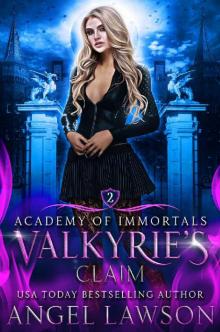 Valkyrie's Claim: Paranormal Romance (Academy of the Immortals Book 2)
Valkyrie's Claim: Paranormal Romance (Academy of the Immortals Book 2)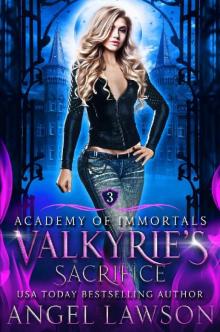 Valkyrie's Sacrifice: Paranormal Romance (Academy of the Immortals Book 3)
Valkyrie's Sacrifice: Paranormal Romance (Academy of the Immortals Book 3)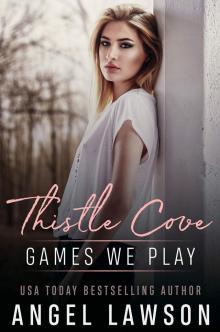 Games We Play
Games We Play![The Death Fields Box Set [Books 4-6] Read online](http://i1.bookreadfree.com/02/the_death_fields_box_set_books_4-6_preview.jpg) The Death Fields Box Set [Books 4-6]
The Death Fields Box Set [Books 4-6]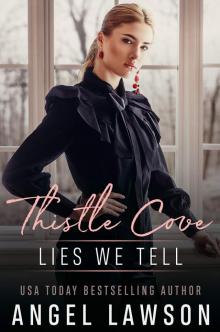 Lies We Tell
Lies We Tell Lords of Pain
Lords of Pain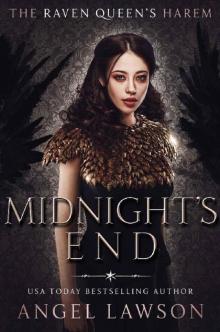 Midnight's End: Raven Queen's Harem Part 6
Midnight's End: Raven Queen's Harem Part 6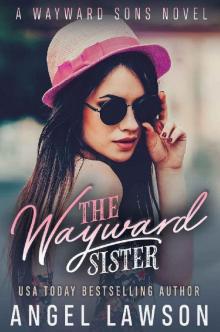 The Wayward Sister (Wayward Sons Book 5)
The Wayward Sister (Wayward Sons Book 5)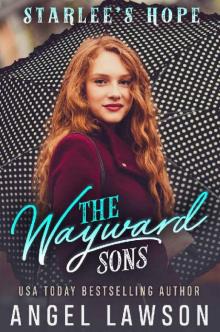 The Wayward Sons: (Book 4) Starlee's Hope
The Wayward Sons: (Book 4) Starlee's Hope The Wayward Sons: (Book 3) Starlee's Home
The Wayward Sons: (Book 3) Starlee's Home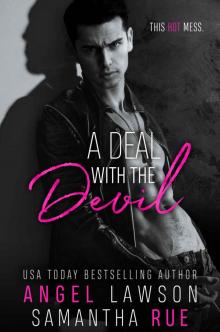 A Deal With the Devil
A Deal With the Devil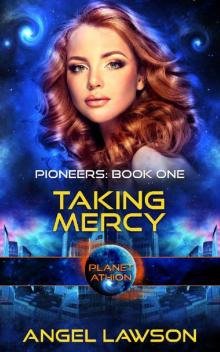 Taking Mercy
Taking Mercy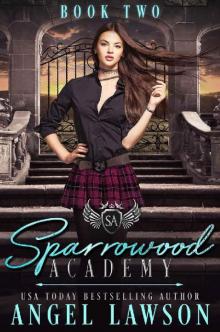 Sparrowood Academy
Sparrowood Academy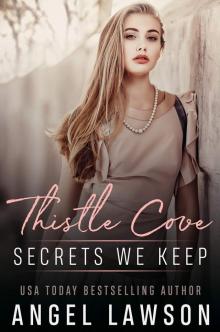 Secrets We Keep
Secrets We Keep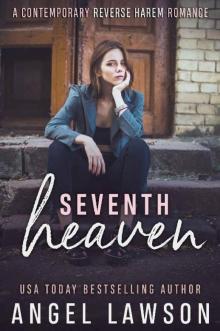 Seventh Heaven: Whychoose Contemporary Romance (The Allendale Four Book 4)
Seventh Heaven: Whychoose Contemporary Romance (The Allendale Four Book 4)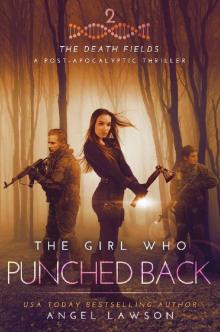 The Girl Who Punched Back: The Death Fields
The Girl Who Punched Back: The Death Fields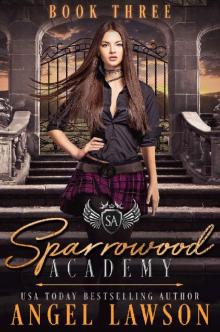 Sparrowood Academy (Book 3): Bully Romance
Sparrowood Academy (Book 3): Bully Romance Serial Summer
Serial Summer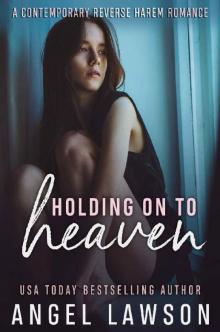 Holding On To Heaven: A Reverse Harem Contemporary Romance (The Allendale Four Book 2)
Holding On To Heaven: A Reverse Harem Contemporary Romance (The Allendale Four Book 2)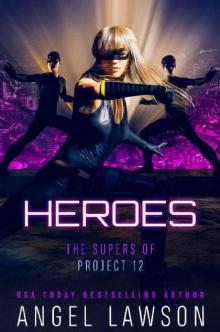 Heroes: Supers of Project 12: Reverse Harem Heroes
Heroes: Supers of Project 12: Reverse Harem Heroes Onyx Eclipse
Onyx Eclipse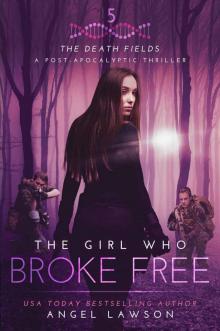 The Death Fields (Book 5): The Girl Who Broke Free
The Death Fields (Book 5): The Girl Who Broke Free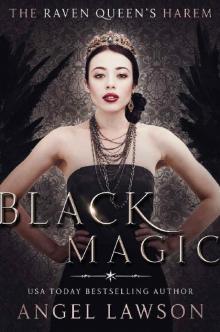 Black Magic
Black Magic Rogues: Supers of Project 12: (Reverse Harem) (The Supers of Project 12 Book 3)
Rogues: Supers of Project 12: (Reverse Harem) (The Supers of Project 12 Book 3)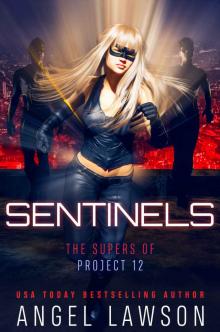 Sentinels_The Supers of Project 12
Sentinels_The Supers of Project 12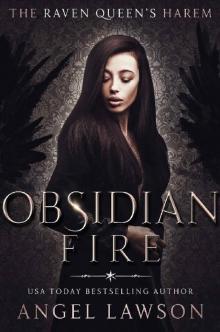 Obsidian Fire (Raven Queen's Harem Part 4)
Obsidian Fire (Raven Queen's Harem Part 4)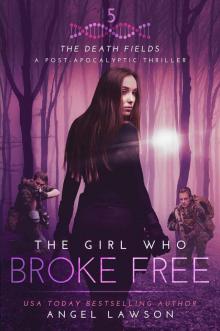 The Girl Who Broke Free: The Death Fields: A Post Apocalyptic Thriller Book 5
The Girl Who Broke Free: The Death Fields: A Post Apocalyptic Thriller Book 5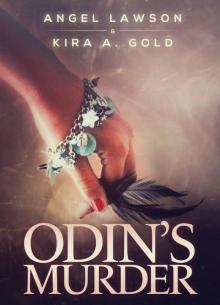 Odin's Murder
Odin's Murder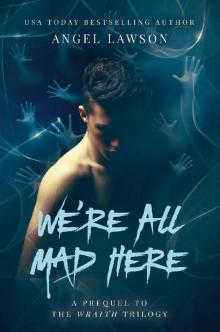 We're All Mad Here
We're All Mad Here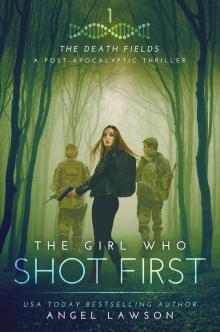 The Girl who Shot First: The Death Fields
The Girl who Shot First: The Death Fields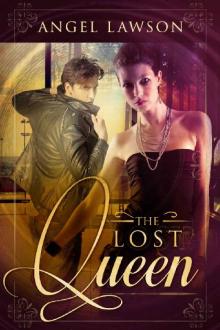 The Lost Queen (Complete Series)
The Lost Queen (Complete Series)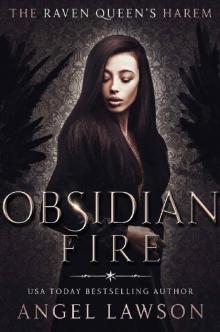 Obsidian Fire
Obsidian Fire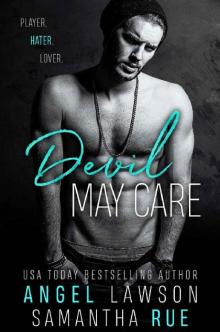 Devil May Care: Enemies-to-Lovers Standalone Romance: Boys of Preston Prep
Devil May Care: Enemies-to-Lovers Standalone Romance: Boys of Preston Prep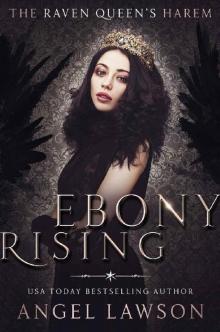 Ebony Rising: (The Raven Queen's Harem Part 2)
Ebony Rising: (The Raven Queen's Harem Part 2)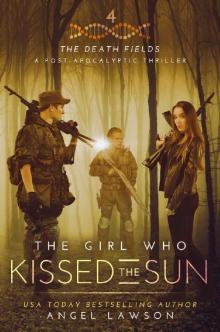 The Girl Who Kissed the Sun: (The Death Fields: A Post Apocalyptic Thriller)
The Girl Who Kissed the Sun: (The Death Fields: A Post Apocalyptic Thriller)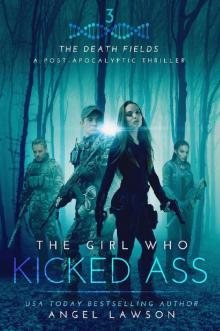 The Girl Who Kicked Ass: (The Death Fields Book 3)
The Girl Who Kicked Ass: (The Death Fields Book 3) The Road To Heaven: A Reverse Harem Contemporary Romance (The Allendale Four Book 3)
The Road To Heaven: A Reverse Harem Contemporary Romance (The Allendale Four Book 3) Summer's Kiss: Reverse Harem Contemporary Romance (The Boys of Ocean Beach)
Summer's Kiss: Reverse Harem Contemporary Romance (The Boys of Ocean Beach)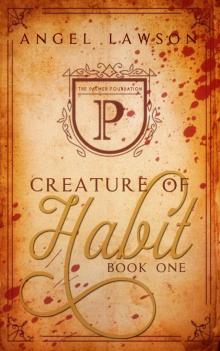 Creature of Habit (Creature of Habit #1)
Creature of Habit (Creature of Habit #1) A Piece of Heaven_A Reverse Harem Contemporary Romance
A Piece of Heaven_A Reverse Harem Contemporary Romance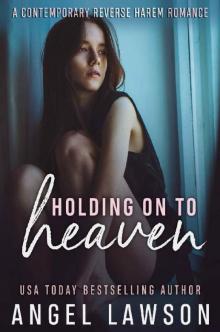 Holding On To Heaven_A Reverse Harem Contemporary Romance
Holding On To Heaven_A Reverse Harem Contemporary Romance Onyx Eclipse (The Raven Queen's Harem Book 5)
Onyx Eclipse (The Raven Queen's Harem Book 5)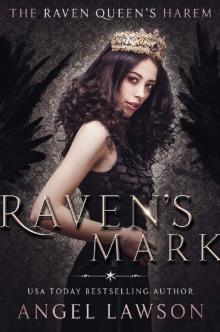 Raven's Mark: (The Raven Queen's Harem Part One)
Raven's Mark: (The Raven Queen's Harem Part One)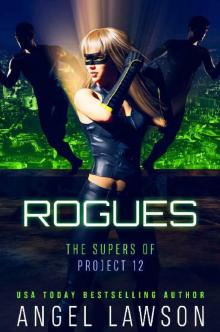 Rogues_Supers of Project 12_Reverse Harem
Rogues_Supers of Project 12_Reverse Harem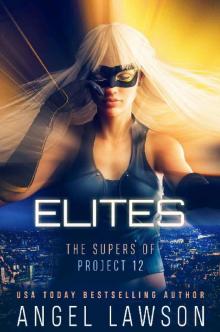 Elites: The Supers of Project 12
Elites: The Supers of Project 12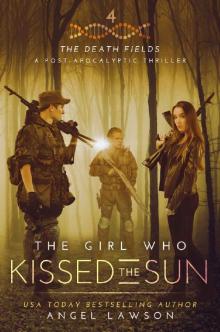 The Death Fields (Book 4): The Girl Who Kissed The Sun
The Death Fields (Book 4): The Girl Who Kissed The Sun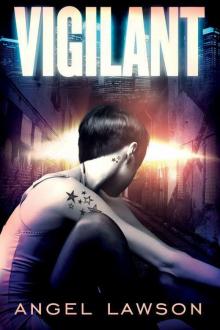 Vigilant
Vigilant Summer's Kiss_Reverse Harem Contemporary Romance
Summer's Kiss_Reverse Harem Contemporary Romance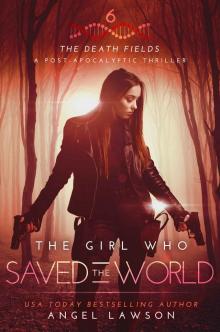 The Girl who Saved the World: The Death Fields: Post-Apocalyptic Thriller Book 6
The Girl who Saved the World: The Death Fields: Post-Apocalyptic Thriller Book 6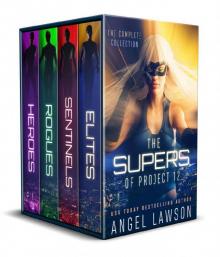 The Supers of Project 12: The Complete Superhero Series
The Supers of Project 12: The Complete Superhero Series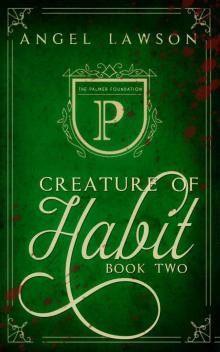 Creature of Habit: Book Two (Creature of Habit #2)
Creature of Habit: Book Two (Creature of Habit #2)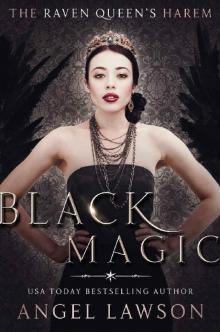 Black Magic (Raven Queen's Harem Part Three) (The Raven Queen's Harem Book 3)
Black Magic (Raven Queen's Harem Part Three) (The Raven Queen's Harem Book 3)